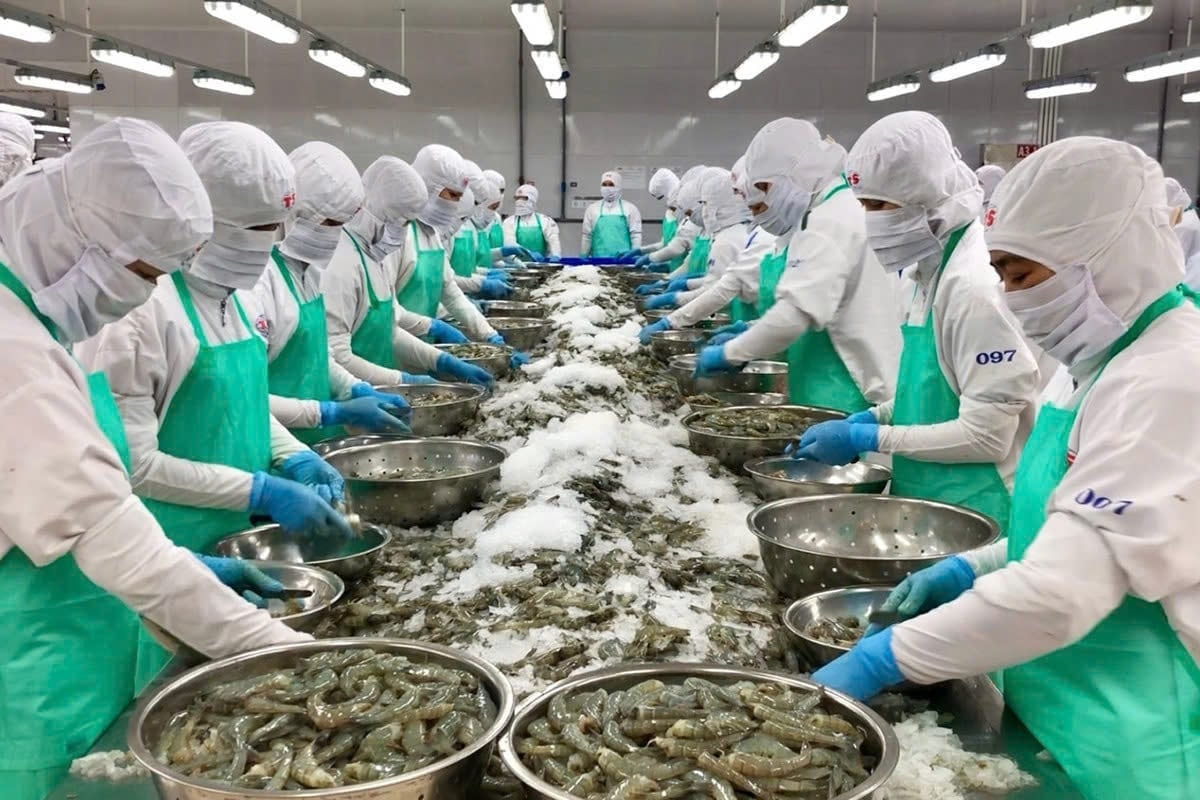December 30, 2025 | 17:57 GMT +7
December 30, 2025 | 17:57 GMT +7
Hotline: 0913.378.918
December 30, 2025 | 17:57 GMT +7
Hotline: 0913.378.918

Export of agricultural, forestry, and fishery products grows over 14% in the first half of 2025. Photo: Minh Hoang.
Vietnam Ministry of Agriculture and Environment reported that in the first six months of 2025, the total import-export value of agricultural, forestry, and fishery (AFF) products was estimated at USD 57 billion, of which exports were estimated at USD 33.5 billion (up 14.3%) and imports at USD 23.5 billion (up 12.8%) compared to the same period in 2024.
In terms of exports, the export value of agricultural products was estimated at USD 18.3 billion, up 16.8%; livestock products at USD 264 million, up 10.1%; fishery products at USD 5 billion, up 14.5%; and forestry products at USD 8.7 billion, up 8.8%.
Notably, nine out of 11 commodity groups, including coffee, rubber, pepper, cashew nuts, livestock products, fishery products, and wood, continued their growth momentum in export value.
Two products that show a declining trend in export value are rice, which reached USD 2.6 billion, down 9.8% compared to the same period last year, and fruits and vegetables, which reached USD 2.7 billion, down 17.1%.
The Ministry of Agriculture and Environment stated that it will maintain exports, preserve and stabilize traditional markets, and explore and shift to potential markets to achieve the export target of USD 65 billion in 2025.
Despite facing many global market challenges such as price fluctuations, technical barriers, and traceability requirements, Vietnam’s agricultural sector has demonstrated strong resilience thanks to active product restructuring and investment in technology.
In addition, the Ministry is working closely with localities to develop concentrated material zones that meet food safety and hygiene standards and reduce logistics costs to enhance competitiveness.
Especially important is maintaining the stability of supply chains in key sectors, strongly developing sectors with competitive advantages and growth potential; maximizing the benefit of deferred taxes, balancing the trade deficit with the United States; and seizing every opportunity to boost exports in early third quarter, accelerating export value to the fullest in the last six months of the year.
Translated by Huong Giang
/2025/12/29/2812-1-182339_699.jpg)
(VAN) The price of mangrove forest carbon credits is high because this forest type not only delivers significant environmental value but also plays a crucial role in addressing other issues.
/2025/12/29/5840-0-115141_514.jpg)
(VAN) From 2026, many EU markets will require shrimp to be electrically stunned before ice immersion, forcing exporters to change technologies to retain market share.
/2025/12/28/4951-2-104623_113.jpg)
(VAN) Rubber exports are forecast to remain under downward pressure in the coming period, as global rubber consumption shows signs of slowing, according to ANRPC's projections.
/2025/12/28/5120-1-093308_94.jpg)
(VAN) Many agricultural products are of sufficient quality to join global supply chains, yet fail to pass the first gateway when entering international markets due to packaging and information in English.
/2025/12/27/2453-2-172141_426.jpg)
(VAN) The sharp decline in the number of EU warnings in 2025 is regarded as a positive signal for the future orientation of Viet Nam’s agricultural exports.
/2025/12/27/1547-2-220434_536.jpg)
(VAN) For many businesses, exporting is a costly trial. But for those choosing a long-term path, small orders are a way to keep markets and learn the rules.
/2025/12/27/2522-1-090748_662.jpg)
(VAN) The 'Large-Scale Rice Field' project has been implemented in An Giang across a total area of more than 5,582 ha, comprising 73 large-scale fields and attracting the participation of 2,027 farmer households.